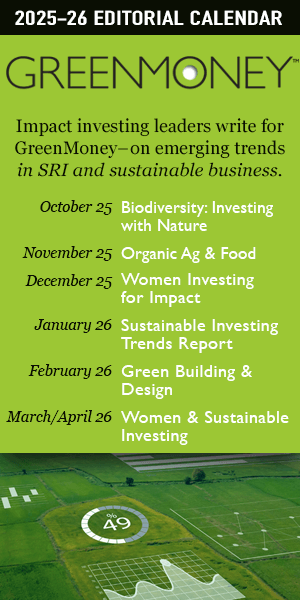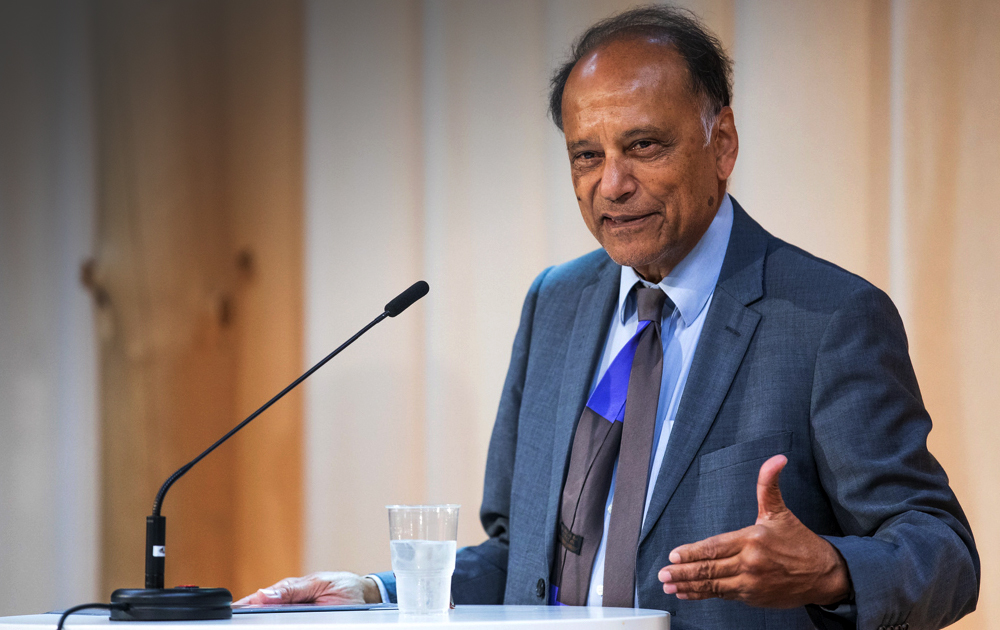On December 31, 2019, I retired from a 33-year career in the investment business. I have a pension, own a home and a new business and have savings that will carry me thru my remaining years in comfort.
And yet, when I was asked to write about my relationship with money, I had to pause and think hard about that relationship. On the surface, it may appear that I received a great grounding in financial matters and that the journey was an easy one. Truth be told, the journey was chaotic and was one where I spent a good deal of time looking in the rearview mirror.
I am the product of single mother household, born and raised in a railroad apartment in Harlem. Throughout my formative years the family drifted between the poor, lower-income and lower middle-income categories. And yet as a youngster, I never heard about those categories nor felt as if I were any of those. We never went without food, always had a roof overhead, and never went without clothes (I lucked out being 10 years younger than my brother – which meant hand me downs were not part of the equation).
 In most respects, other than the occasional “I’m not made of money”, my mother tried to protect us from the financial struggles that she encountered during those years. We purchased our Christmas tree on Christmas Eve because it was cheaper then. On the day after Christmas, my grandmother would head downtown to the fancy department stores to buy gifts and things for next Christmas. That was the day of the deep discounts. On regular occasions we would pile into a neighbor’s car and head over to Two Guys in New Jersey, where we bought all of our clothing, appliances and anything else we could load in the car, at very discount prices. If it wasn’t at Two Guys or Woolworths, then we didn’t get it. So that meant no brand name underwear, jeans, sneakers. The only concession to that was for my Converse sneakers, which I was allowed to get if I could pay the amount above what the store brand cost.
In most respects, other than the occasional “I’m not made of money”, my mother tried to protect us from the financial struggles that she encountered during those years. We purchased our Christmas tree on Christmas Eve because it was cheaper then. On the day after Christmas, my grandmother would head downtown to the fancy department stores to buy gifts and things for next Christmas. That was the day of the deep discounts. On regular occasions we would pile into a neighbor’s car and head over to Two Guys in New Jersey, where we bought all of our clothing, appliances and anything else we could load in the car, at very discount prices. If it wasn’t at Two Guys or Woolworths, then we didn’t get it. So that meant no brand name underwear, jeans, sneakers. The only concession to that was for my Converse sneakers, which I was allowed to get if I could pay the amount above what the store brand cost.
These were all signs, but signs whose meaning I didn’t know. They would become a roadmap that would emerge in the rearview mirror.
Soon, I was to enter a world that had never been on my radar screen and where I would be confronted head-on with the reality of our financial circumstance and where the language of poor, lower income, etc. would be made clear to me. I received scholarships to attend a private military boarding high school and an Ivy League college.
High school was a full scholarship, with the family responsible for “residual” costs (uniforms, books, sports equipment), none of which we could afford. But my mother stepped up to help with some of the costs and I was expected to also contribute around 15-20% of those “residual” costs. Things got serious real fast and I spent my high school years working at various jobs to make sure I could contribute. I also spent those years riding the Long Island Railroad home on weekends, while my classmates were picked up by parents in Lincolns, Mercedes and other assorted luxury cars. I visited homes where the living room was larger than my entire apartment. While they went to Europe on winter and summer vacations, I trucked back to the city to work so that I could afford my part of the “residual” bill.
College was funded with a combination or scholarships, school loans and work. At the time school loans were securitized by the Federal government and the interest rates ranged from 2-3.25%. During Freshman Orientation, AMEX had tables outside of the main room, and with nothing more than a signature, I was on my way with my first credit card (well actually a charge card with NO limits).
In addition to quality educations, my experience in privileged settings triggered a consumption gene. The gene triggered was actualized with an endless pool of credit provided by American Express.
Needless to say, things did not go well. After racking up thousands of dollars in debt (because I mistakenly assumed that I could pay over time), the reality of the impact of uncontrolled debt became clear.
And here was my moment. The fear of failure caused me to take stock and figure out what my next steps would be. I would either have to go to my mother, confess my failures and ask for her help, or figure it out on my own.
The thought of being face-to-face with the person who sacrificed everything to permit me this access was unthinkable. It represented a turning point in my rather tenuous relationship with money. That led me to think hard about the role I wanted money to play in my life and it took me back to some of the things that I experienced when I was younger.
All of this led me to think about money and finance. Well, it led to thinking about financial independence as a theme. How could I achieve some level of financial independence, so I was not dependent on someone else for my long-term success?
In my search for that independence, somehow I drifted back to those times when I was a kid – my rear view moment. I tried to figure out what my experiences meant and whether there were some life lessons to be learned. That led to adding an econ minor to my Political Science/Urban Studies major.
It led me to understand that thrift and value were key building blocks to financial independence, as was a “debt is bad” mentality (which has evolved to “some debt is bad”). Home ownership and robust savings were also part of the plan. My debts were slowly paid off (thanks to the low student loan interest rates). My first investment was a Lord Abbott mutual fund; my second was Atari, based on my nephews’ obsession with it. The mutual fund investment was very profitable, the Atari one, a bust. Another lesson learned.
All of this led to a decision that a finance career was the next logistical step in understanding and mastering this concept of financial independence. And thus began my legitimate relationship with money.
And as they say, the rest is history…
Article by Francis G. Coleman, Founder and CEO, BeingFrank Consulting
With more than 32 years of experience in the SRI/ESG industry, with a focus on serving Catholic institutional investors at Christian Brothers Investment Services (CBIS), Francis (“Frank”) G. Coleman, has developed a comprehensive knowledge of the needs of the industry and is a nationally recognized expert in the integration of ESG principles and Catholic Social Teaching to the investment process.
During his tenure at CBIS, Mr. Coleman has had a number of leadership positions within the firm, covering most of the main business lines of the firm. As part of this role, he was the primary CBIS contact in its work with a wide array of industry and Catholic organizations. He was also responsible for expanding CBIS’ corporate engagement program and connecting it with the broader national and international community.
In addition, he has had a long and varied history of serving as an advisor or Board member to a number of organizations, domestic and international.
Frank has written and spoken extensively on matters related to ESG/SRI. His most frequent topics are centered on the intersection of faith and finance and on racial justice in the financial services industry. He has been an advocate of the importance of a faith/moral/ethical framework as being an integral ingredient to promoting impact, sustainability and corporate change.
Among honors received is the SRI Service Award-(FAFN), and the ICCR Legacy Award 2019.
He retired from CBIS Dec 2019 and is now the Founder and CEO of BeingFrank Consulting, a consulting firm serving the ESG industry. Contact him at- Frank@BeingFrankConsulting.com
NOTE to Reader – Frank also wrote some insightful articles for GreenMoney on Facebook, foreseeing many of their current company-wide problems and increased public scrutiny. Here are two:
Facebook – Another Moral Dilemma (2019)
and

















